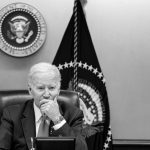In an unsettling flashback to the tumultuous 2016 election, it’s come to light that the Trump campaign has suffered a breach. The emails of at least one senior staff member were hacked, and sensitive material, possibly concerning the vetting of potential Vice President JD Vance and Senator Marco Rubio, found its way into the hands of various news outlets. Meanwhile, whispers are brewing about an attempted cyber intrusion aimed at the Biden-Harris camp—a drama the Democrats seemed to have largely sidestepped, at least for now.
The source of this digital unraveling? The U.S. government has explicitly pointed fingers at Iran, confirming their involvement in the hacking escapade targeting Donald Trump’s campaign. The FBI and other intelligence agencies released information that sheds light on the Iranian government’s efforts to meddle in the election, which included attempts against both Trump’s and Biden’s campaigns. It seems the Ayatollahs are as interested in American politics as some Americans are—perhaps more so.
We Now Know Who Was Behind the Hacking Attempts on the Trump and Biden-Harris Campaignshttps://t.co/NP3QIeXuqC
— RedState (@RedState) August 20, 2024
While the Biden-Harris campaign proclaimed they fended off the hackers, Trump was met with the grim news during a briefing from the FBI. The allegation that hackers used social engineering tactics to infiltrate the personal networks of campaign affiliates suggests a persistent and organized effort. The intelligence community doesn’t shy away from declaring the intent behind these hacks: meddling in the U.S. electoral process. For a country like Iran, which has been practicing these malicious cyber maneuvers for years, this is just another day in the digital battleground.
Delving into the hack’s mechanics unveils an interesting twist. Roger Stone, a longtime Trump ally, seems to have inadvertently served as the entry point for the Iranian hackers. Reports suggest they gained access to Stone’s personal email and then leveraged that foothold to target a senior staffer within the Trump campaign. With techniques linked directly to the Iranian Islamic Revolutionary Guard Corps (IRGC), the hackers evidently have experience that includes consistent attempts to breach political campaigns, evidenced in both the U.S. and elsewhere.
Moreover, this hacking incident comes amidst a backdrop of a worrying assassination plot against Trump orchestrated by a Pakistani national allegedly connected to the Iranian regime. The implications of such threats highlight the very real dangers facing the political landscape. Adding insult to injury, Iran itself recently became a victim of a cyber attack targeting its Central Bank, making one question the effectiveness of its own defenses while it engages in foreign cyber warfare.
With the election looming just a few months away, the expectation is that both sides will face increased foreign interference attempts. If history has taught anything, it’s that just as elections heat up, so too do the tentacles of foreign influence. While Democrats might enjoy a temporary reprieve from the chaos, the shadows of 2016 are creeping back in as Iran steps up its cyber antics—proving that the political game remains as perilous as ever, especially for those unprepared to defend their digital domains.




